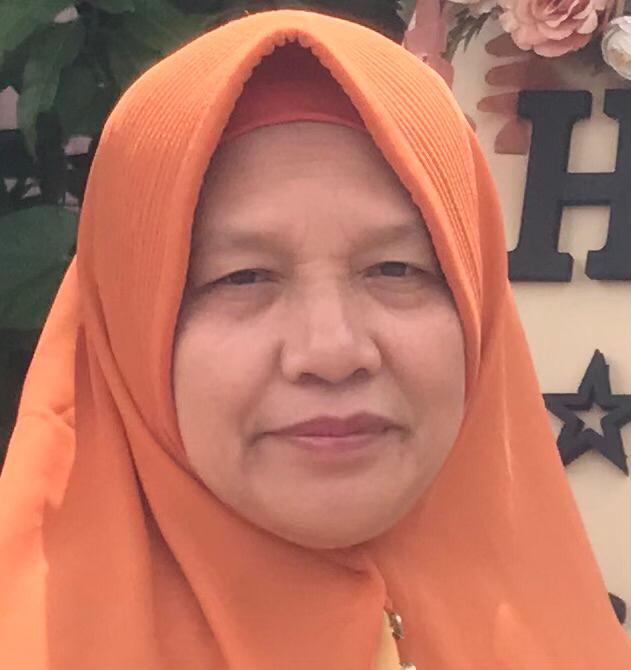Empowerment of The Madrasah in Fulfillment of Children's Rights to Education (CRE) Through Assistance Child-Friendly School in Madrasah and Raudhatul Athfal
Main Article Content
Abstract
The policy of child-friendly schools (CFS) is the government's effort to fulfill the right to education for children However, this policy has not been fully adopted by the madrasah and Raudhatul Athfal (RA). This article discusses what programs can increase motivation and improve understanding of child-friendly school management in madrasah and RA. The community service uses the Asset Based Community Development (ABCD) approach refer to John McKnight and Jody Kretzmann (1993) and Bandura social learning theory. The results of the service show that the CFS socialization program through web seminar has increased the madrasah's understanding of the concept of CFS and motivated the madrasah to adopt CFS. The results also showed that the program socialization for CFS standards and training on children's rights conventions increased the understanding of madrasahand RA in managing CFS. The community service recommends the next community service involve the madrasah committees and community
Downloads
Article Details

This work is licensed under a Creative Commons Attribution-ShareAlike 4.0 International License.
References
K. Artadianti and A. Subowo, “Implementasi Sekolah Ramah Anka (SRA) Pada Sekolah Percontohan Di SD Pekunden 01 Kota Semarang Sebagai Upaya Untuk Mendukung Program Kota Layak Anak (KLA),” J. Chem. Inf. Model., vol. 53, no. 9, pp. 1689–1699, 2019.
MoWECP, “Ministry of Women Empowerment and Child Protection: Gender Equality Outlook 2019,” 2020.
B. Sutami, D. Setyawan, and N. Fithriana, “Implementasi Program Sekolah Ramah Anak Dalam Mewujudkan Kota Layak Anak Di Kota Batu,” Reformasi, vol. 10, no. 1, pp. 19–26, 2020, doi: 10.33366/rfr.v10i1.1695.
E. Fauziati, S. Suharyanto, I. Nurcholis, and A. Santriane, “Pelatihan Dan Modelling Implementasi Sekolah Ramah Anak Bagi Guru- Guru Sekolah Menengah Atas,” SELAPARANG J. Pengabdi. Masy. Berkemajuan, vol. 5, no. 1, p. 1017, 2021, doi: 10.31764/jpmb.v5i1.6760.
L. D. Prasojo, “ada 2 metode yang ditempuh, yaitu: (1) Evaluasi selama proses pelatihan, dan (2) evaluasi pasca pelatihan. Kata Kunci : Pelatihan, SRA, Pandemi Covid-19,” no. 1, p. 19.
K. A. Arwildayanto, “Implementasi Program Sekolah Ramah Anak Pada Sekolah Menengah Atas,” J. Adm. Pendidik., vol. 27, no. 1, pp. 170–183, 2020, doi: 10.17509/jap.v27i1.24408.
S. Handayani, A. Ghofur, and D. N. Fadhillah, “Pelatihan Dan Pendampingan Dalam Pengabdian Dan Pendampingan Pemasaran Produk Hasil Homemade Dengan Media Sosial Di Desa Deketagung Kecamatan Sugio Kabupaten Lamongan,” J. Karya Abdi Masy., vol. 4, no. 2, pp. 299–304, 2020, doi: 10.22437/jkam.v4i2.10540.
Pekanbaru.go.id, “Perda Pekanbaru No 33 Tahun 2016,” no. July, pp. 1–23, 2016.
Pekanbaru.go.id., “Disambangi Tim KLA , Wali Kota : Konsep Smart City Madani Juga Ramah Pada Anak,” 2019.
Kemenag.go.id., “MTs . Muhammadiyah 02 Kota Pekanbaru Raih Penghargaan Sekolah Ramah Anak Tingkat Nasional Tahun 2022 MTs Negeri 1 Pekanbaru Deklarasi Madrasah Ramah Anak Kepala KUA Kecamatan Mandau Hadiri Acara Sosialisasi Masjid Ramah Anak ( MRA ) Di Kelurahan Talang Ma,” pp. 2021–2023, 2021.
A. Alfina and R. N. Anwar, “Manajemen Sekolah Ramah Anak Paud Inklusi,” AL-TANZIM J. Manaj. Pendidik. Islam, vol. 4, no. 1, pp. 36–47, 2020, doi: 10.33650/al-tanzim.v4i1.975.
UNICEF, “The Child Friendly School manual,” Manual, pp. 1–244, 2006, [Online]. Available: http://www.unicef.org/publications/files/Child_Friendly_Schools_Manual_EN_040809.pdf.
Subur, M. N. Qosim, and I. Nugroho, “Implementasi Sekolah Ramah Anak dalam Membentuk Budaya Sekolah di SDN Geger Tegalrejo,” Pros. Konf. Nas. ke-7 Asos. Progr. Pascasarj. Perguru. Tinggi Muhammadiyah ’Aisyiyah, no. March, pp. 353–357, 2018.
C. Assets, “Asset-Based Community Development ( ABCD ): core principles,” Res. Handb. community Dev., pp. 67–75, 1993.
P. Benoliel, “A Team-Based Perspective for School Improvement: The Mediating Role of School Management Teams,” J. Res. Educ. Eff., vol. 14, no. 2, pp. 442–470, 2021, doi: 10.1080/19345747.2020.1849481.
Kemenag.go.id, “Dosen Fakultas Tarbiyah Uin Suska Riau silaturahmi ke Penmad Kemenag Kota Pekanbaru,” 2021.
Kemenag.go.id., “Ka.KanKemenag Hadiri Sosialisasi SRA di RA Al Hidayah Pekanbaru,” 2021.
Kemenag.go.id., “NGOPI ; Sinergi Kamenag Kota Pekanbaru , Dinas DP3APM , dan UIN Suska,” 2021.
G. Jensen, “Social learning theory,” The Routledge Companion to Criminological Theory and Concepts. pp. 115–119, 2017, doi: 10.4324/9781315744902-26.
T. H. Haines, “Review of General psychology.,” Am. J. Orthopsychiatry, vol. 11, no. 3, pp. 608–609, 1941, doi: 10.1037/h0096745.
D. L. Ball, “Center for Research,” Sci. News-Letter, vol. 74, no. 7, p. 109, 1958, doi: 10.2307/3939780.
N. Clair, S. Miske, and D. Patel, “Child Rights and Quality Education,” Eur. Educ., vol. 44, no. 2, pp. 5–22, 2012, doi: 10.2753/eue1056-4934440201.
P. RI, “Keputusan Presiden Nomor 36 Tahun 1990 tentang Konvensi Hak-Hak Anak,” no. 1, 1990, [Online]. Available: http://ditjenpp.kemenkumham.go.id/arsip/ln/1990/kp36-1990.pdf.

